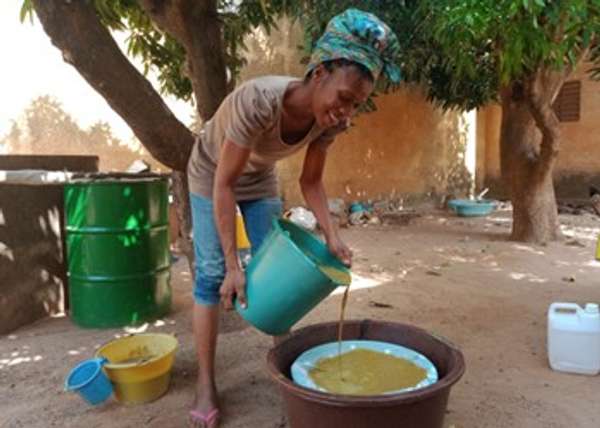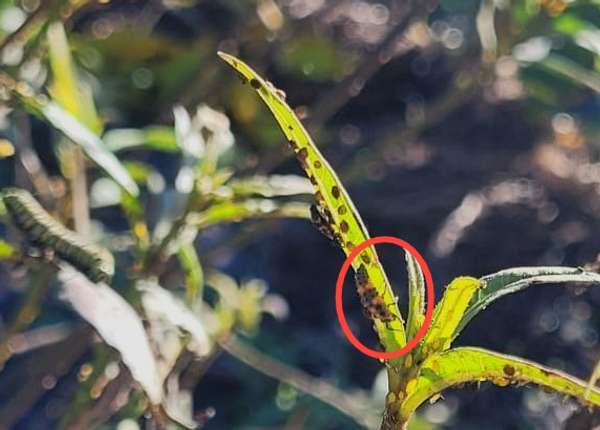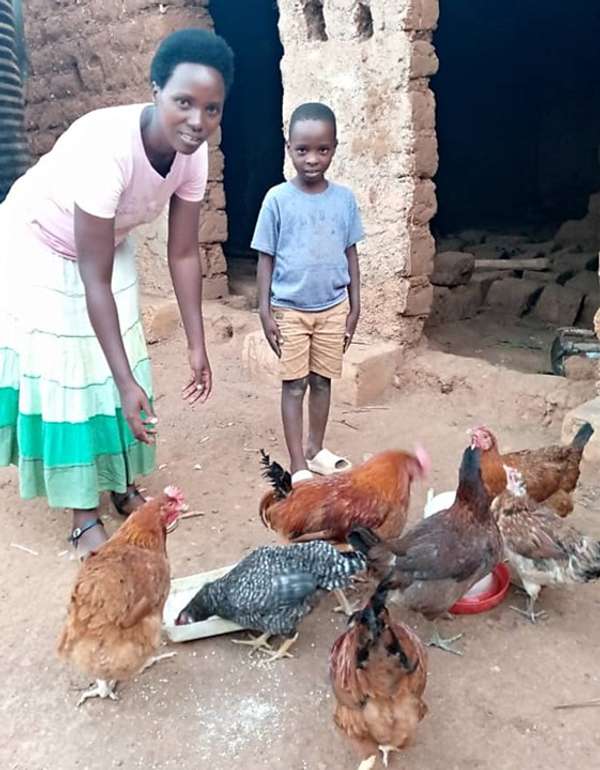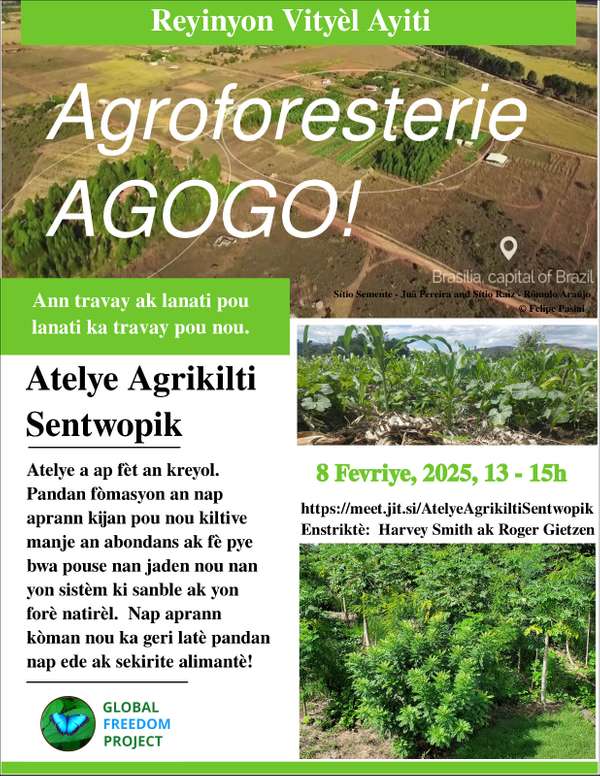ECHOcommunity อัปเดต
ECHO East Africa Burundi Symposium 2025-03-18
The 8th ECHO East Africa Biannual symposium in collaboration with HOPE International Burundi was held at the end of February, 2025. The symposium had 30 presenters and 130 participants from 14 countries across continents. Participants shared and encouraged one another in areas of sustainable agricultural practices, agroecology, farming systems, and more!
Don't miss the next ECHO East Africa event this July
Black Sapote Seeds - Now available for a limited time! 2025-03-13
Black sapote (Diospyros nigra) is also called chocolate pudding fruit or black persimmon. Fruits turn brown and soft when ripe. Fruits are eaten fresh, cooked in dishes, or combined with dairy products. ECHO staff and volunteers enjoy using the fruit to make black sapote bread or black sapote brownies. Seeds of black sapote do not store for long periods of time because they are recalcitrant and therefore are only offered from the ECHO Global Seed bank for a limited time each year. You must be an active development worker and a registered member of ECHOcommunity to order seeds. To learn more about black sapote, see ECHO's plant information sheet: Black Sapote.
The many causes of leaf curling 2025-03-12
Plant leaves curl in response to various environmental stressors. When certain pests, such as psyllids, mealybugs, and thrips, feed on a leaf it can cause leaf curling and deformation. When plants are too hot or too dry, they can also curl along the entire leaf margin. Some diseases, usually viral, also cause leaf curling. So, when you see leaves of your plants curling how do you know the cause? Below are some general guidelines:
- Leaf margins curling down, no yellowing – underwatering
- Leaf margins curling down, yellowing – overwatering
- Leaf margins curling upwards – heat or wind stress
- Leaf curling mainly in new growth and in deformed ways – often a disease or insect pest
- Middle or old leaves curling and have patchy yellowing but green veins – Magnesium deficiency
- New leaves curling and have patchy yellowing but green veins – Manganese deficiency
Underutilized Crops Symposium: Register Today! 2025-02-24
Fort Myers, FL | October 20-24, 2025
ECHO is partnering with the International Society for Horticultural Science (ISHS) to host a four-day symposium centered on underutilized plant species. Beyond the few staple grains that supply most of the world’s food lies a host of plant species that are largely neglected. Among them are fruits, agroforestry species, green manure/cover crops, leafy greens, fuelwood species, animal forage and fodder species, and plants that provide ecological services such as erosion control. Advancing our knowledge of these plants is vital to creating food and agroecosystems that thrive under challenging growing conditions and changing climates. Join us at this symposium to grow your knowledge around these underutilized crops!
Upcoming Spring Trainings 2025-02-18
We have two more trainings coming up this spring you can still sign up for in North America!
March 24-28: TOT With CHE Global Network
To learn more information about this course and to register use the link below.
April 7-11: TAD 2 - Food Forest, Garden Design, and Planning
Interested in starting your own food forest in your back yard? Your school? Your church? Click the link below for more details about this course and to sign up.
EDN #168 Now Available 2025-02-11
In this issue
- 10-Day Organic Liquid Protective Fertilizer
- Raw, Boiled, and Fermented Banana Stalk Comparison for use in Farm-generated Pig Feed
- Grey Water for Watering Plants
- From ECHO's Seed Banks: Vigna vexillata, A Multi-Purpose Legume with Edible Tubers
- Books, Websites, and Other Resources: Invitation to Submit an Article and Underutilized Crops Symposium Speaker Highlights
10-Day Organic Liquid Protective Fertilizer
Hassan Djebro
Excerpt:
To protect plants against pests and diseases and to speed plant growth, treat seeds with the liquid protective fertilizer before sowing. First, coat 1 kg of seed in 250 ml of undiluted liquid protective fertilizer. Then dry the seeds in the shade before sowing. To protect the roots of vegetable plants and cuttings, soak the roots of vegetable plants (onions, tomatoes, lettuce, cabbage, etc.) and cuttings (sugarcane, manioc, potatoes, etc.) in a dilution of 250 ml of liquid protective fertilizer to 1 L of water for 30 minutes before planting.
ECHO East Africa Update: Lablab (Ngwara) 2025-02-04
During the Ngwara field day, Mr. Emmanuel Kasembe, Iles de Paix Tanzania Technical Advisor, and Bonny, ECHO East Africa Technical Advisor, facilitated an open discussion on Ngwara-related topics. The discussion covered various aspects, including planting techniques, uses, markets, and more. Visitors had the opportunity to test the seed coat removal machine designed by Engineer Naomi from Agriculture Seed Agency. The prototype underwent testing using Ngwara seeds. The removal of seed coats reduces cooking time of the seeds. Other experienced Ngwara cooks who visited the ECHO table during the day suggested avoiding the removal of seed coats before cooking, as it results in the loss of certain nutrients found in the seed coats. As part of the day's activities, ECHO interns served Ngwara beans and cooked Ngwara leaves to the event participants.
Encouraging predatory insects in your garden 2025-01-28
Our normal instinct upon finding any pest species, such as aphids, in or anywhere near our gardens is to eradicate all of them. However, is this always the best course of action? An important part of integrated pest management is encouraging predatory species of insects in your garden. Predatory insects need a certain level of pest insects to feed on, otherwise their populations will decline. The lack of predatory insects can then lead to even higher levels of pests in the next life cycle.
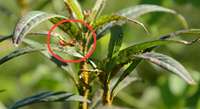
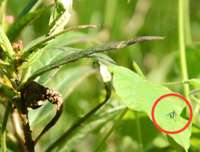
If you have any examples of plants that serve as predatory species banks like this, we would love to hear about them in the ECHO Community.
Community Animal Health Worker New Resources! 2025-01-21
ECHOcommunity’s collection of Community Animal Health Worker (CAHW) Resources has been enhanced recently by the addition of 3 outstanding offerings. Vétérinaires Sans Frontières International has recently published a Handbook for Planning and Managing CAHW Programmes (2024) with translations in English, French, Spanish, Portuguese, and Arabic.
From the International Animal Health Consultants, we have received 3 translations (English, Mandarin, French) of the Handbook for Animal Health (2007/2018).
And from the Christian Veterinary Mission, we have received 3 translations (English, Spanish, Thai) of Where There is No Animal Doctor (Rev 2016).
Additional translations will be posted if they become available. All of these books are downloadable in the ECHO Community Mobile App, as well.
Agroforesterie AGOGO! 2025-01-15
Tout moun yo akeyi yo rantre nan Harvey ak tèt mwen pou yon fòmasyon sou entènèt teyori syntropic. Si ou te patisipe nan atelye nou an nan tan lontan, se pral menm sijè a nou te kouvri la. Li pral an Kreyol sèlman. Si w konnen yon moun ki ka benefisye, tanpri pataje envitasyon an. Tout moun akeyi. Anba a se lyen pou rantre nan apèl videyo a. Li ka louvri ak yon navigatè. Pa bezwen jwenn aplikasyon an oswa kreye yon kont. Mwen tann evènman an.
Roger
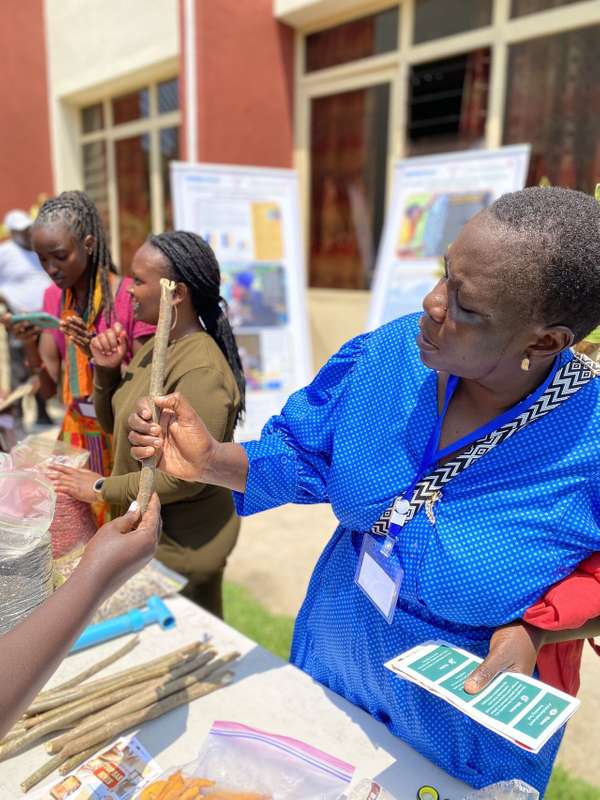
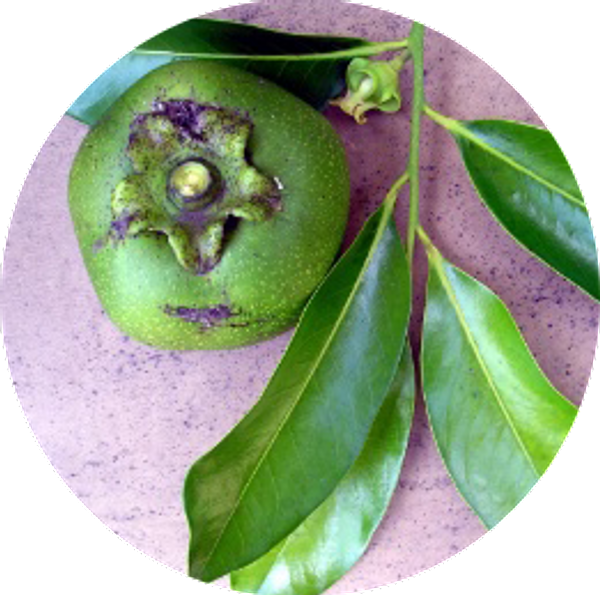
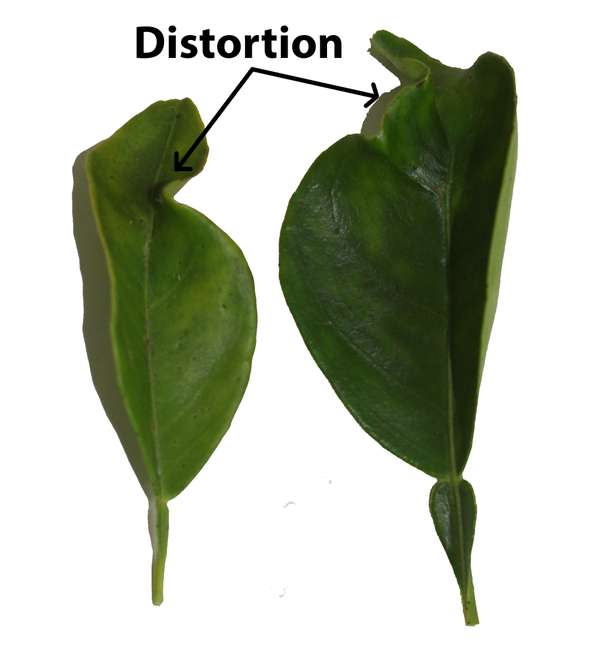
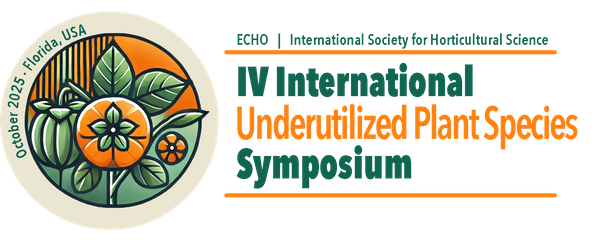
.jpg?w=600)
